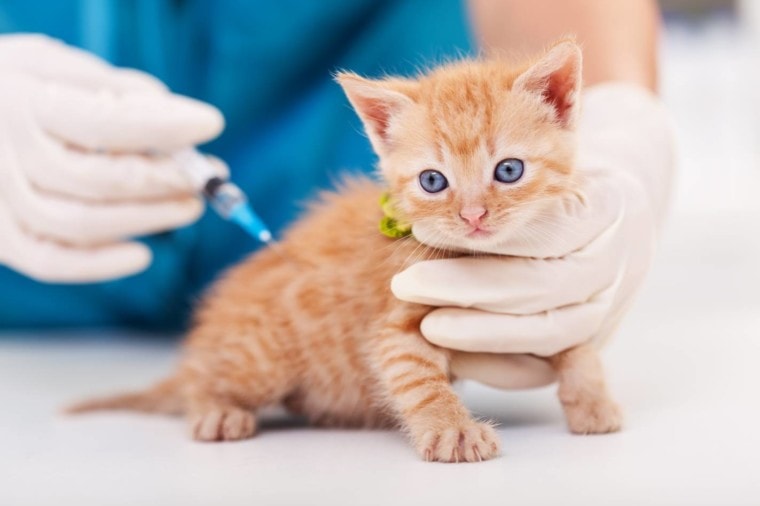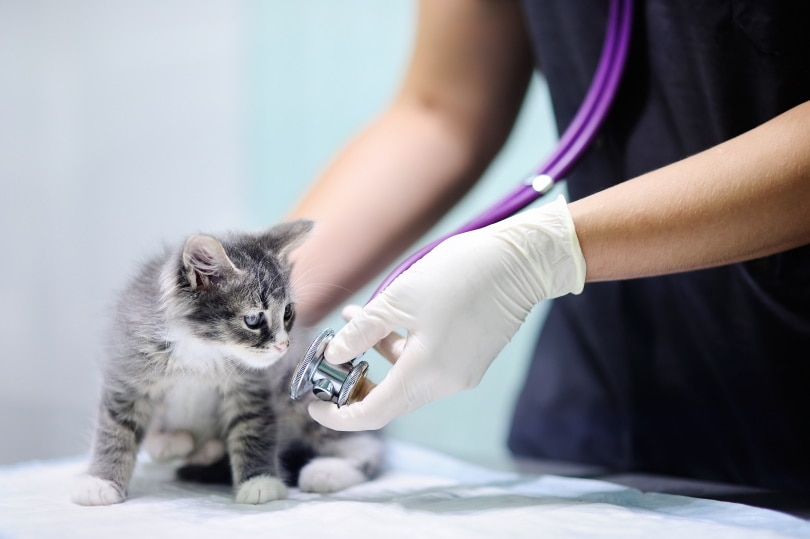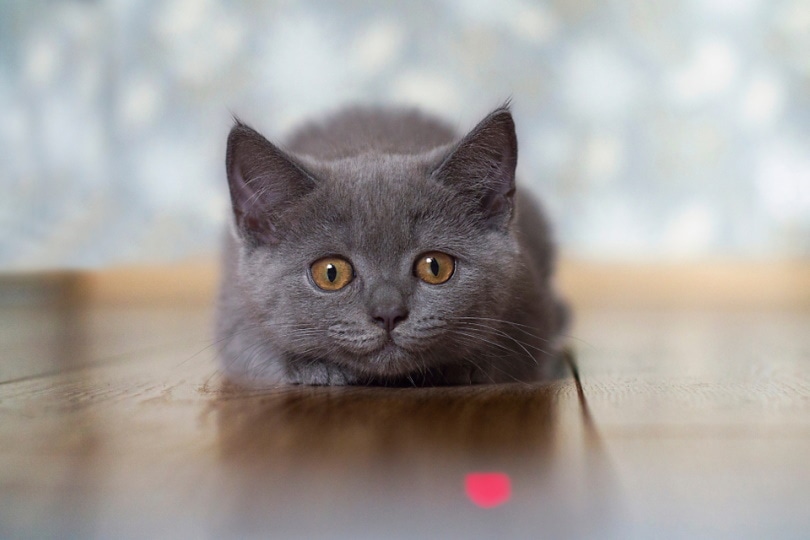
Kittens are a huge responsibility that require a lot of care and attention from the first night you bring them home. Your kitten should undergo several vaccinations from the time they are 6 to 8 weeks old until they are 4 months old. The vaccines are repeated over a period of 3 to 4 weeks to ensure active immunity.
Many new kitten owners think that this amount of medical attention and immunizations is unneeded and a waste of time. Although this is a common assumption, it’s crucial to provide your kitten all the right immunizations and vaccines from the time they are very young to ensure optimal health and behavior.
For a complete guide about vaccines for your kitten, read on. This guide details when you should vaccinate your kitten, which vaccines are mandatory, and other medical treatments you should get for your kitten.
 When Should I Get My Kitten Vaccinated?
When Should I Get My Kitten Vaccinated?
Your kitten should begin receiving immunizations once they are 6 to 8 weeks old. The scheduled vaccinations will be repeated every 3 to 4 weeks until your kitten is around 4 months old. The cycle of vaccination ensures your cat gets full immunity to various illnesses.

Why Does My Kitten Need More Than One Vaccine?
Although it may sound like overkill for your kitten to receive this many vaccines, it increases the likelihood of your cat developing active immunity against the diseases in question. Whenever your kitten is first born, they get the immediate immunity they need through mother’s milk. This immediate immunity only lasts for the first few weeks of their life and is called passive immunity.
The purpose of the vaccine is to help build your kitten’s immune system and develop active immunity on their own. The passive immunity acquired via the mother’s colostrum will only last during the first couple of months of a kitten’s life. The active immunity achieved when having their own antibodies provides longer protection.
Unfortunately, it takes a bit of precision and skill to foster active immunity in your kitten. For starters, you can’t provide the vaccines too early. If the mother’s antibodies from the milk are present in your kitten’s bloodstream, the kitten’s body will not respond to the vaccine, making the vaccine useless.
At the same time, you don’t want to wait too long to administer the vaccines. If you wait too long, the kitten may get exposed to the diseases and develop the illness before you have a chance to administer the vaccine in the first place.
Since the length of time that the antibodies remain in the kitten’s body varies, vets recommend providing your kitten a series of vaccines, instead of one. This series ensures that your kitten develops active immunity, even if antibodies were present in the earlier vaccination. Likewise, repetitive vaccines are more effective simply since the body was exposed to the disease more than once.
Core vs. Non-Core Vaccinations for Kittens
Vaccines for kittens are often separated into core and non-core vaccines. As you would expect, core vaccines are required to protect your kitten from the most common feline diseases, whereas non-core vaccines are not required but can further protect your kitten.
Core vaccines include immunizations for feline distemper, viral rhinotracheitis, calicivirus, and rabies. The first three diseases are fought using a combination vaccine that is administered while your kitten is between 4 and 16 weeks old. The rabies vaccination is separate and normally given once your kitten reaches 12 or so weeks old.
Non-core vaccinations fight feline leukemia, Chlamydophila, and other similar illnesses. Not all cats will need these vaccines since location, history, and various health factors impact the likelihood of your kitten developing the disease. Your vet will recommend non-core vaccines if your kitten is deemed a good candidate.

Other Medical Treatments for Your Kitten
In addition to vaccines, you should give your kitten other medical treatments to treat other illnesses that aren’t necessarily tackled with vaccines. For example, you should provide your kitten medication for worms, fleas, ticks, and ear mites.
Not all kittens will be born with worms, but your vet will likely perform a stool test to confirm whether worms are present. Even if worms are not present, your vet will recommend an annual treatment for the above-mentioned issues. Often, you will need to repeat these medications every year to keep your cat healthy for its entire life.
Tips for Keeping Your Kitten Healthy
Vaccines and medical treatment are just one aspect of keeping your kitten healthy. To ensure your cat grows to be happy, you need to provide them the correct nutrition and activity. Only by combining medical treatment with proper diet and exercise can you help your kitten grow to be as healthy as possible.
As for your kitten’s diet, provide them food specifically made for kittens. Kitten food will offer the perfect nutrition for your cat’s growing body. Look for food with high protein and moisture contents, moderate fat content, and low carbohydrate content. When it comes to carbohydrates, the fewer, the better.
In addition to providing healthy food for your kitten, provide constant access to water. Clean out the water bowl every day to ensure the water remains fresh and tasty for your cat. Especially if you feed your kitten dry cat food, ensure there is tons of water for your kitten to get ahold of.
Most likely, you won’t need to force your kitten to exercise since kittens are naturally hyper and mischievous. You might want to provide new toys and stimulation areas to ensure that your kitten plays in a healthy yet non-destructive way.
 Final Thoughts
Final Thoughts
You should begin getting your kitten vaccinated by the time they are 4 to 6 weeks old. Continue the vaccine process until your kitten is 4 months old. This immunization cycle ensures that your kitten is developing the active immunity they need to withstand common feline diseases.
Make sure to talk to your vet about non-core vaccines and additional medical treatments too. By providing your kitten the best health care from the time they are a newborn, you can allow your kitten to grow into a healthy cat with health that lasts their entire life.
Featured Image Credit: Ilike, Shutterstock


 When Should I Get My Kitten Vaccinated?
When Should I Get My Kitten Vaccinated?




